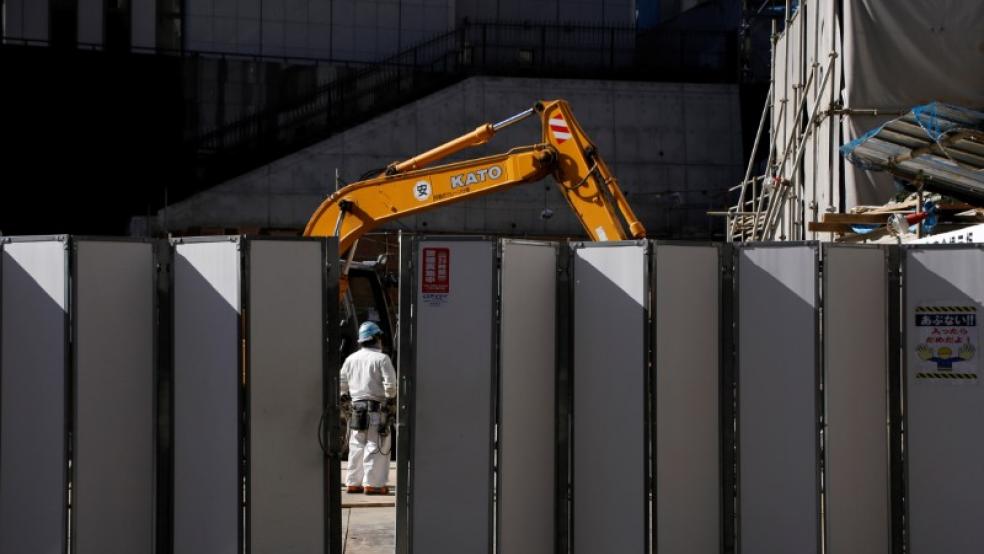TOKYO (Reuters) - Japanese machinery orders bounced back in October with a faster increase than expected, re-affirming the resilience of capital spending - a key driver in the economy's near two-year expansion.
Core machinery orders, a volatile data series regarded as an indicator of capital spending in the coming six to nine months, climbed 5.0 percent in October from the previous month, the Cabinet Office said on Wednesday.The gain in core orders, which exclude those of ships and power generation equipment, beat economists' median estimate of a 3.0 percent increase. Orders fell 8.1 percent in September, the steepest drop in more than two years.Capital spending - investment in factories and equipment - was a big contributor to the economy's seventh straight quarter of growth in the July-September period, the longest streak on record in data going back to 1994, making up for a rare decline in consumer spending.In the longer term, the government is urging companies to increase capital spending to improve productivity in response to a shrinking labor force as the population declines."Machinery orders from manufacturers were especially strong in October," said Daiju Aoki, UBS Securities regional chief investment officer for Japan."In the fourth quarter, the manufacturing sector is very solid. I think that exporters are benefiting from demand from China, and there's demand because of the labor shortage," he said.Orders from manufacturers rose 7.4 percent in October, led by chemical makers and electronics manufacturers.A Cabinet Office official said demand for machinery to make semiconductors and smartphone-related parts was picking up as the economies of China and other Asia countries recovered.But non-manufacturers' orders rose a more muted 1.1 percent, after an 11.1 percent slide in September. They were supported by demand from shipping and postal firms.UBS's Aoki said he was concerned about the non-manufacturing sector as consumer sentiment had been hurt in part by higher food prices, which shoppers are reluctant to accept at a time of slow wage growth."So fourth-quarter machinery orders, from these numbers, could be close to flat compared with the third quarter," he cautioned.Compared with a year earlier, core orders increased 2.3 percent versus economists' expectations of a 2.8 percent fall.The government maintained its assessment that machinery orders were showing signs of picking up.For the data on the Cabinet Office's website:http://www.esri.cao.go.jp/en/stat/juchu/1710juchu-e.html (Reporting by Chris Gallagher; Editing by Eric Meijer)Japan's October machinery orders jump in show of resilience

Yuya Shino



